Introduction
Efficient claims denial management is vital for healthcare providers to ensure financial stability and deliver high-quality patient care. The denial of claims not only affects a provider’s revenue but also has an impact on the patient’s experience and the overall efficiency of the healthcare system. By managing claims denials effectively, providers can reduce financial losses, enhance patient satisfaction, and optimize their operations.
Claims denials can lead to substantial financial losses for healthcare providers. When claims are denied, providers do not receive reimbursement for their services, resulting in revenue loss. This loss can have a significant impact on a provider’s ability to invest in new technology, hire skilled staff, and provide quality care to patients.
Furthermore, the time and resources devoted to reworking denied claims can further strain a provider’s finances. Therefore, efficient claims denial management is crucial for providers to minimize financial losses and maintain a sustainable business model.
Key Takeaways
- Efficient claims denial management is crucial for healthcare providers to maintain financial stability and ensure patient satisfaction.
- Claims denials can have a significant impact on healthcare providers, leading to revenue loss, increased administrative burden, and decreased patient satisfaction.
- Effective strategies for claims denial management include proactive identification of denial trends, timely resubmission of denied claims, and staff training on denial prevention.
- Unresolved claims denials can result in serious financial consequences for healthcare providers, including cash flow disruptions and increased operational costs.
- Improving patient satisfaction can be achieved through efficient claims denial management, as it reduces billing errors, minimizes delays in treatment, and enhances the overall patient experience.
The Impact of Claims Denials on Healthcare Providers
Claims denials can have a significant impact on healthcare providers, affecting their revenue, operations, and patient satisfaction. When claims are denied, providers not only lose out on revenue but also have to invest additional time and resources in reworking the claims. This can lead to increased administrative costs and decreased efficiency in the provider’s operations.
In addition, claims denials can also result in delayed payments, affecting the provider’s cash flow and ability to invest in new technology and resources. Furthermore, claims denials can also impact patient satisfaction. When claims are denied, patients may be left with unexpected medical bills or may experience delays in receiving the care they need.
This can lead to frustration and dissatisfaction among patients, impacting their overall experience with the healthcare provider. Therefore, it is crucial for providers to effectively manage claims denials to minimize their impact on both their financial stability and patient satisfaction.
Strategies for Effective Claims Denial Management
There are several strategies that healthcare providers can implement to effectively manage claims denials. One key strategy is to invest in technology that can streamline the claims denial process. By using advanced software and analytics, providers can identify trends and patterns in claims denials, allowing them to proactively address issues and prevent future denials.
In addition, technology can also automate the claims denial management process, reducing the administrative burden on staff and improving efficiency. Another important strategy is to establish clear communication and collaboration between different departments within the healthcare organization. By fostering a culture of transparency and teamwork, providers can ensure that all staff members are aligned in their approach to claims denial management.
This can help identify the root causes of denials and implement effective solutions to prevent future occurrences.
The Financial Consequences of Unresolved Claims Denials
| Reasons Why Efficient Claims Denial Management Matters |
|---|
| 1. Reduced Revenue Loss |
| 2. Improved Cash Flow |
| 3. Enhanced Patient Satisfaction |
| 4. Compliance with Regulations |
| 5. Streamlined Operations |
Unresolved claims denials can have significant financial consequences for healthcare providers. When claims are left unresolved, providers not only lose out on revenue but also incur additional costs in reworking the claims. This can lead to decreased profitability and strain the provider’s financial resources.
In addition, unresolved claims denials can also result in delayed payments, impacting the provider’s cash flow and ability to invest in new technology and resources. Furthermore, unresolved claims denials can also lead to increased administrative costs. Providers may have to invest additional time and resources in reworking denied claims, diverting valuable resources away from other critical areas of their operations.
This can lead to decreased efficiency and increased overhead costs for the provider. Therefore, providers must prioritize resolving claims denials promptly to minimize their financial impact.
Improving Patient Satisfaction through Efficient Claims Denial Management
Efficient claims denial management is not only important for the financial stability of healthcare providers but also for improving patient satisfaction. When claims are denied, patients may be left with unexpected medical bills or may experience delays in receiving the care they need. This can lead to frustration and dissatisfaction among patients, impacting their overall experience with the healthcare provider.
Providers can minimize the impact on patient satisfaction by effectively managing claims denials. This includes proactively communicating with patients about potential denials and working with them to address any issues that may arise. In addition, by streamlining the claims denial process and minimizing delays in reimbursement, providers can ensure that patients receive timely and efficient care without unnecessary financial burdens.
Therefore, efficient claims denial management is crucial for improving patient satisfaction and maintaining a positive reputation within the community.
The Role of Technology in Streamlining Claims Denial Processes
Technology plays a crucial role in streamlining claims denial processes for healthcare providers. Advanced software and analytics can help providers identify trends and patterns in claims denials, allowing them to proactively address issues and prevent future denials. In addition, technology can also automate the claims denial management process, reducing the administrative burden on staff and improving efficiency.
Furthermore, technology can also facilitate communication and collaboration between different departments within the healthcare organization. By using integrated systems and platforms, providers can ensure that all staff members are aligned in their approach to claims denial management. This can help identify the root causes of denials and implement effective solutions to prevent future occurrences.
Therefore, investing in technology is essential for healthcare providers to streamline their claims denial processes and improve overall efficiency.
Best Practices for Preventing and Resolving Claims Denials
There are several best practices that healthcare providers can implement to prevent and resolve claims denials. One key practice is to conduct regular audits of claims processes to identify potential issues and areas for improvement. By analyzing claims data and identifying trends, providers can proactively address issues before they lead to denials.
Another important practice is to establish clear communication and collaboration between different departments within the healthcare organization. By fostering a culture of transparency and teamwork, providers can ensure that all staff members are aligned in their approach to claims denial management. This can help identify the root causes of denials and implement effective solutions to prevent future occurrences.
The Importance of Timely and Accurate Claims Documentation
Timely and accurate claims documentation is crucial for preventing claims denials and ensuring timely reimbursement for healthcare providers. By documenting services accurately and submitting claims promptly, providers can minimize the risk of denials and delays in payment. This includes ensuring that all necessary information is included in the claim, such as patient demographics, diagnosis codes, and procedure codes.
In addition, providers should also invest in training staff members on proper documentation practices to ensure accuracy and compliance with billing regulations. By educating staff on best practices for documentation, providers can minimize errors and reduce the risk of denials. Therefore, timely and accurate claims documentation is essential for healthcare providers to prevent denials and maintain a healthy revenue cycle.
Conclusion
Efficient claims denial management is crucial for healthcare providers to maintain financial stability and provide quality care to their patients. Providers can minimize financial losses, improve patient satisfaction, and streamline their operations by effectively managing claims denials. Investing in technology, establishing clear communication between departments, and prioritizing timely and accurate documentation is essential for preventing and resolving claims denials. Therefore, healthcare providers must prioritize efficient claims denial management as a key component of their overall revenue cycle strategy.


